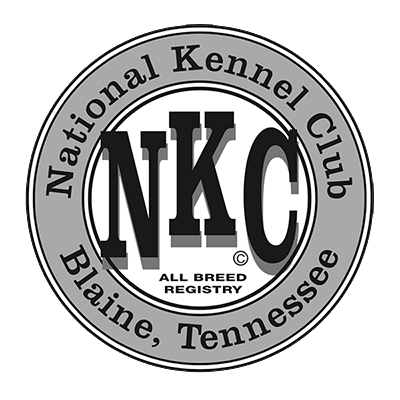NKC Licensed Show Judge Program
updated 7-29-07
To become an NKC licensed show Judge:
- Apply for license as an Official NKC show judge and breed inspector.
- * New effective 7-2-9-07 *To become an NKC American Bulldog judge, you must apprentice a minimum of two shows under the guidance of either an NKC Senior Judge or Intermediate Judge and pass the American Bulldog Judges Test. After Judging 7 show’s, with at least 3 shows under an Intermediate or Senior Judge you will be come an Intermediate Judge. After judging 3 show’s as an Intermediate Judge, you will take the last test to be come a Senior Judge. The final test is an oral hands on test of of judging an American Bulldog before a panel of Senior American Bulldog Judges. The panel will meet as needed or at an NKC sanctioned event to test for Senior Judges.
- Demonstrate the professionalism and knowledge necessary to carry the title of official NKC show judge and breed inspector.
Know the official NKC breed standards for each breed judged. - Maintain the integrity, Ethics and professionalism expected of all NKC officials.
If each of these requirements is met and the Judge/Apprentice is sponsored by at least 1 senior NKC Judge in good standing then the apprentice earns the title of Official NKC Show Judge.
Senior Judge Requirements:
To become an NKC Senior Judge you must be a current NKC Licensed Judge in good standing with the National Kennel Club and have successfully judged 10 National Kennel Club Sanctioned Shows.
Dogs Ineligible to be Judged by NKC Judges:
- A dog that is owned and/or co-owned by them.
- A dog that is owned and/or co-owned by a member of their immediate family.
- A dog that is owned and/or co-owned by a member of the residence in which the Judge resides.
- A dog that has been owned trained or raised by the Judge within three months of the time of sale of the dog.
Official Guidelines for Judges in the Ring:
- The Judge has the right and responsibility to withhold awarding a placement to a dog if, in their opinion, there is not a dog submitted that qualifies or meets the breed standard. The Judge must inform the exhibitor immediately at the conclusion of the class that a placement was not awarded. Awards and/or ribbons are not to be presented to any dog whose placement is withheld.
- Judges may award lower placement to dogs not of caliber to earn a 1st place win.
- The Judge has the right to split or divide classes, when considered necessary.
- The Judge must see that all handlers gait or walk their dog.
- Judges should give equal time in examining each dog they are judging.
- Judges should not open a dog’s mouth to examine its bite; he/she should ask the handler to do so.
- The Judge should use hands to check all dogs’ bone structure and conformation.
- The Judge has the right to order dogs to be moved back from the show ring so the dogs being shown are not disturbed.
- In judging the class, the Judge may use some means of attracting the attention of a particular dog for inspection or comparison.
- While judging a dog, the Judge shall not ask the individual handing the dog who owns the dog, who the dog was purchased from, or what line the dog is out of.
Judges must be willing to accept the responsibilities of discussing their decisions if asked to do so by the owner or handler, prior to the next class being called. A judge may not be called upon to explain their decision on any dog after the show is over and winners are announced. - A Judge may dismiss any dog that is overly aggressive toward him/herself, or another competitor. A Judge may also dismiss any dog that is out of control or becoming a nuisance in the ring.
- When Best of Show or Best of Breed is chosen, the Judge is encouraged to give a short critique of the dogs, with an explanation of their decision.
- The Judge must judge a show from beginning to end. He may not step out of the ring and be replaced by another Judge for any reason except illness, accident, or some other extenuating circumstance that directly concerns him/her. If a Judge is unable to finish their judging assignment, the organization sponsoring the show must authorize another Judge to take over the remainder of the show.
NKC Judge’s & Apprentice Judge’s Code of Ethics:
A NKC Judge and apprentices will, to the utmost of their ability, maintain the highest standards of their position as a NKC Licensed Judge. These standards include:
- A neat professional appearance and manner.
- Conformation placements should be awarded strictly on the dogs’ merit and according to the NKC Breed standard not the judge’s personal opinion.
- Setting a personal example for which future Judges and participants will seek and aspire.
- A NKC Judge is responsible for their conduct, which should always be becoming of a Judge.
- A Judge should refrain from excessive conversation with handlers while he or she is in the ring judging at an event.
- A Judge should refrain from overly socializing with exhibitors whom the Judge will be later judging.
- NKC Licensed Judges are welcome to attend events as spectators, exhibitors, stewards or members of the club hosting an event. Judges who are not on the judging panel for the dog or who have completed their judging assignments should feel free to conduct themselves as any other attendee at a NKC event.


